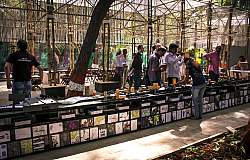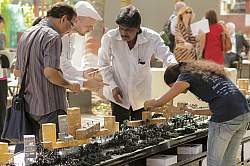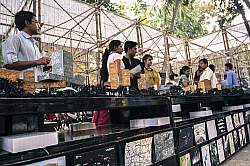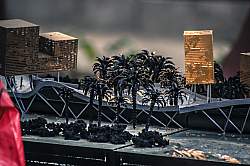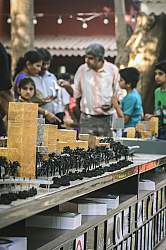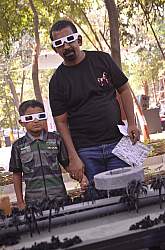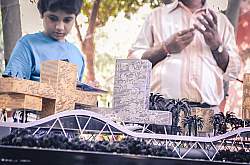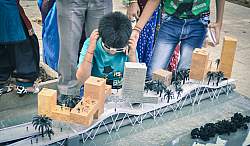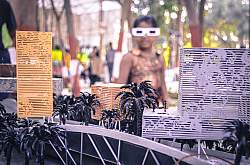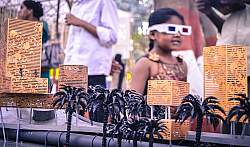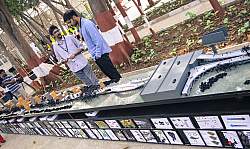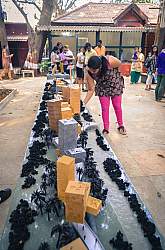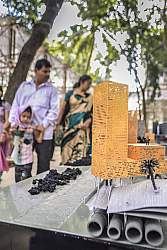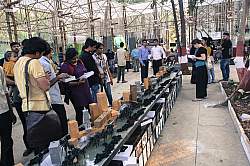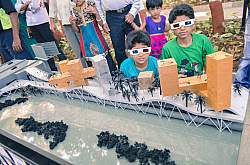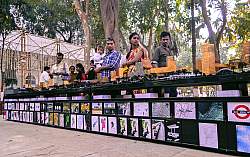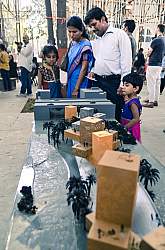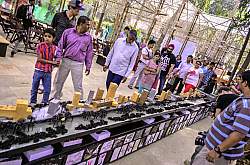landlink
The Landlink is a provocative statement about beginning to use what Mars calls “infraspace”—the space taken up by infrastructure alone. “Any space currently used solely for infrastructure in Mumbai is so often just taken over by other activities —whether [they are] commercial, or leisure, or praying, or whatever—and we can really learn from that. I think from highways to pipelines to flyovers to train tracks, all these spaces make up a vast amount of area in Mumbai that has potential to be redeveloped in an interesting way because there is no other land. So it’s almost about indicating how you can have multiple functions, multiple program[s] stacked on the same purpose, and then the obvious choice is this infraspace,” he told me as we walked.
Secondly, he said, the proposal is a counter-move to the highly controversial Sea Link bridge—a costly development directly adjacent to the Landlink route that connects south Mumbai to north Mumbai by rerouting cars around the city’s congestion via a toll bridge that juts out into the water.
“We’re suggesting that instead of linking, let’s say, formal acknowledged city to formal acknowledged city, we should start linking slums. Slums make up the majority of the people in the city, and they are becoming increasingly mobile. They need connections. They need forms of getting around. If we’re moving toward a middle-class situation, mobility is key,” he said. And naturally following that: “It shouldn’t be about cars, obviously, it should be about high-speed local transport.”
